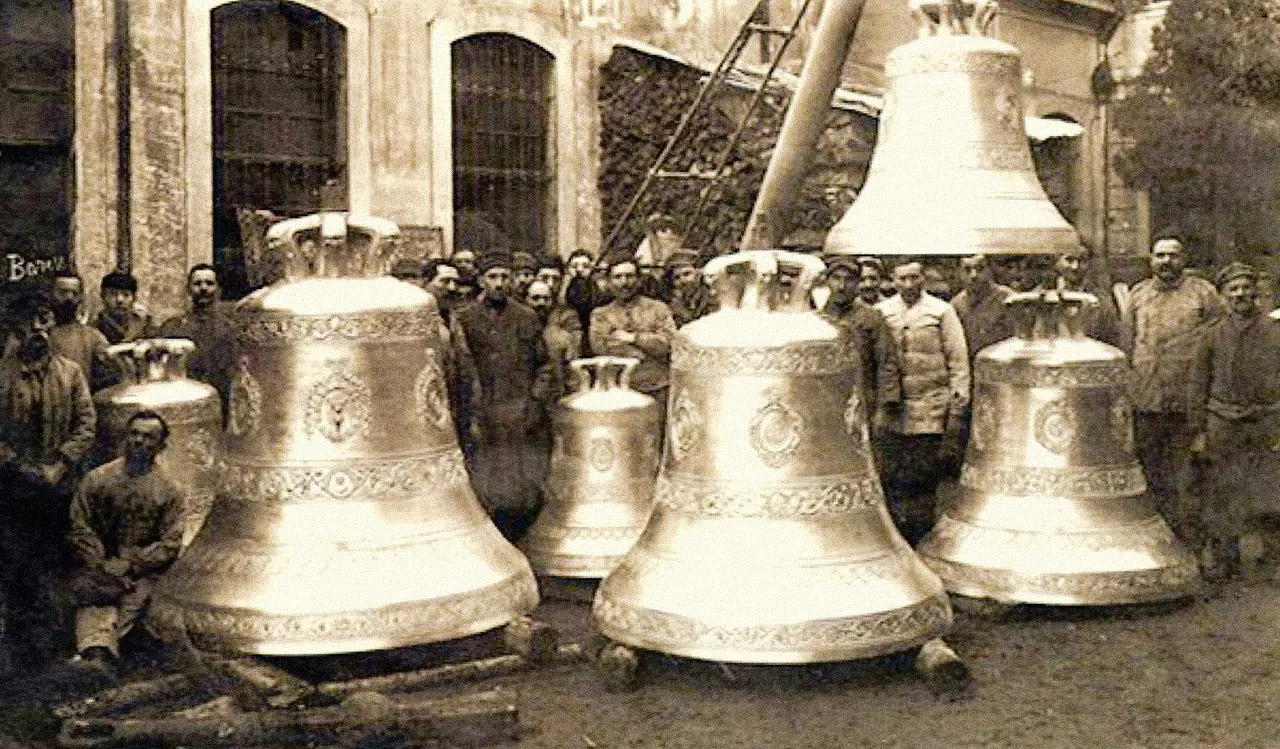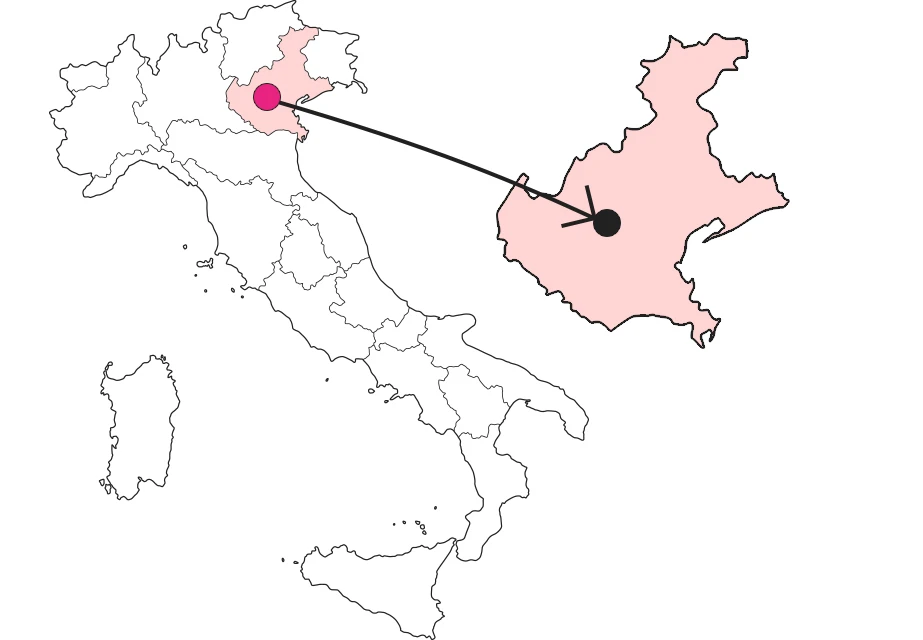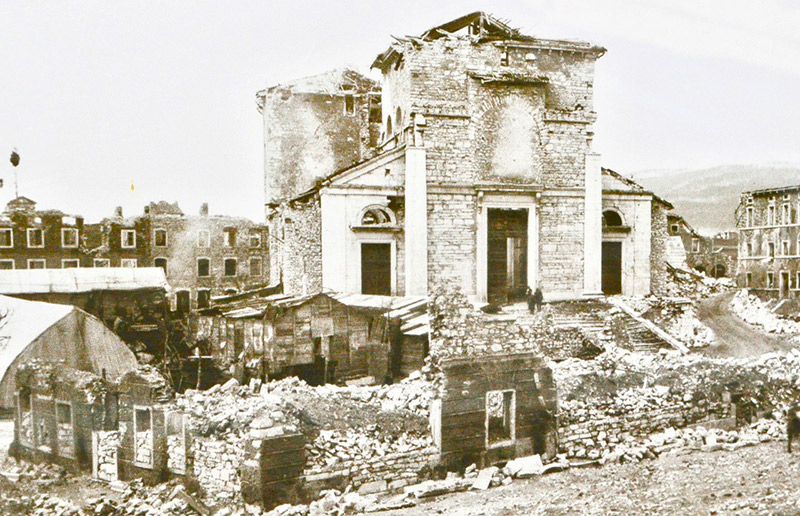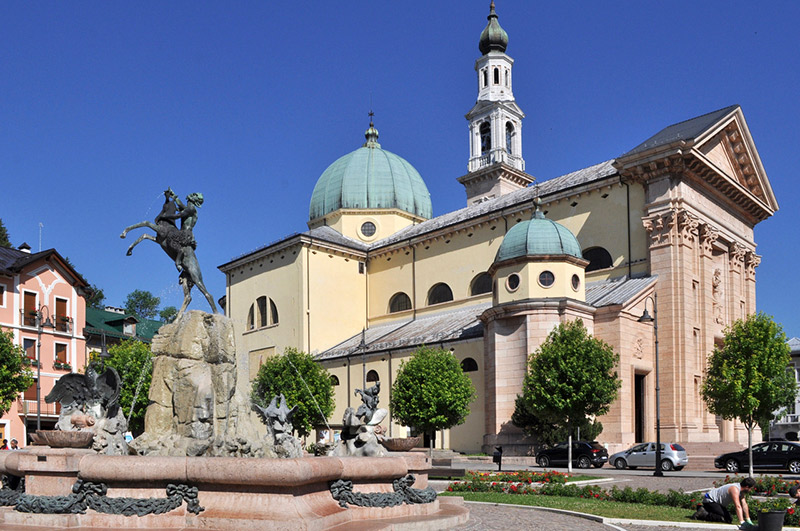SHARRYLAND


Where is

Asiago Cathedral boasts one of the most admired bell concerts in the Veneto region, and in one of his novels Mario Rigoni Stern fondly recounts its troubled history.
The Matìo, the Maria, the Giovanna, the Toni, the Rita and the Modesto
"The six bells had arrived from Verona on March 18, 1922 from the same foundry that had first cast them in 1820. Without the clappers they weighed a total of 97 quintals and it took two large trucks to bring them up here." So writes Mario Rigoni Stern in his novel The Seasons of James about the sacred bronzes of Asiago Cathedral. A collective test, the raising of the bells on the bell tower, immortalized by a period photo, with two teams of at least fifty men shelled along large ropes. "The Matìo was the biggest, indeed the biggest, then came the Maria, La Giovanna, the Toni, the Rita and the Modesto. By the name of these saints they had been blessed and so were called ab antiquo, by name, as people of our Community." The writer recalls the practice of dedicating the bells to saints who were the object of local devotion, starting with the patron saint St. Matthew, and then the custom of naming them familiarly, since their voices would punctuate the daily life of the Plateau.
To each their task
According to tradition, they were sounded as follows: the Matìo for the fire of fires, to ward off thunderstorms, to call a meeting of the town council; the Maria for the Angelus; the Toni alone for the transitus of men; the Giovanna alone for the transitus of women, and the two, together, in barrels, for funerals; all six, in a spread, sounded at large feasts, for weddings and for the feast of conscripts... This was another widespread custom: To invoke divine help by raising the voice of a specific bell, which often bore the propitiatory formula cast in bronze, for example, "A fulgure et tempestate libera nos Domine," when it was supposed to avert hail, or "Defunctos ploro" if intended to ring in death. All together then the bells ring out in solemnities. A bell concert, justly famous. By the way, for those with a musical ear, the key of the concert, which today has 8 bells, in diatonic scale Sib2.
 Year 1919: how the inhabitants of Asiago, refugees for 30 months, found the cathedral, half-destroyed by Austrian bombing, as was much of the historic center.
Year 1919: how the inhabitants of Asiago, refugees for 30 months, found the cathedral, half-destroyed by Austrian bombing, as was much of the historic center.A difficult time
The site of Rigoni Stern's re-enactment is the square of Asiago, capital of the Plateau known as the Seven Municipalities. Rigoni Stern's words hark back to the years immediately following World War I. In 1916 the town had been razed to the ground by Austrian bombing, and the bells were shattered under the rubble of the bell tower. In just six years the cathedral, dedicated to St. Matthew the Apostle, would be rebuilt as such, the neoclassical facade in the beautiful pink marble of the Plateau, together with the facing Town Hall and the dignified buildings that complete the trapezoid of the square.
 In the center of the square is the Faun fountain with the patron deity of flocks riding a roe deer, and, around the perimeter of the pool, the four animals of the woods: grouse, fox, eagle and squirrel.
In the center of the square is the Faun fountain with the patron deity of flocks riding a roe deer, and, around the perimeter of the pool, the four animals of the woods: grouse, fox, eagle and squirrel.Once the reconstruction was finished, the church would again house those paintings that are evidence of Asiago's privileged relationship with Bassano del Grappa, on the trade route that historically linked the Plateau to Padua, so much so that it was part of the diocese of Padua. At the high altar, a Madonna Enthroned with Child between St. Matthew and St. John, by Francesco da Ponte the Elder (c.1470-1537), and, at the Chapel of the Sacred Heart, a St. Anthony Abbot between Saints Justina, Lucia, Rocco, Vito, Modesto and Crescenzia, by Francesco da Ponte the Younger (1549-1592). Names of saints, which then not surprisingly are found on the bells.
When they sing in chorus
One of the most auspicious occasions to hear the plenum of bells is the St. Matthew's Fair, which takes place in September, at the time when the cattle come down from the mountain pastures to the plains, marking the end of the summer period. A time for trade, it was also a time for all the communities of the Plateau to meet in the main town. Today as then, an opportunity to wander among the stalls displaying typical products, but also curious and bizarre things. Or, even closer to tradition, the bells ring out on the evening of the Great Rogation, at the end of the propitiatory procession for the agricultural year, which since the 15th century has been held on the Saturday before the feast of the Ascension, touching various locations on the Plateau along a thirty-kilometer route.
Enter the Map of Italy's Undiscovered Wonders and find treasures where you least expect it... Inspire, Recommend, Share...
The Map thanks:
Enter the Map of Italy's Undiscovered Wonders and find treasures where you least expect it... Inspire, Recommend, Share...
Where is



